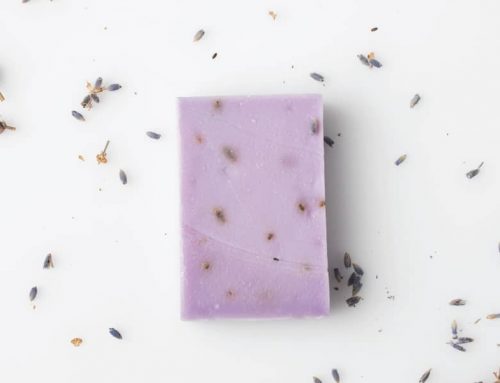Do you use Apple Cider Vinegar in your home. What do you know about Apple Cider Vinegar. Vinegar was originally used as a food preservative, however vinegar has a lot of medicinal uses as well.
Vinegar is a liquid consisting of about 5 to 20% acetic acid, water and other trace chemicals. The acetic acid is produced by the fermentation of ethanol by acetic acid bacteria. There are a variety of different types of vinegar on the market but would like to concentrate on apple cider vinegar as it has so many health benefits.
Apple cider vinegar (ACV) is made from apple and has a brownish-gold colour. It is sold as unfiltered and unpasteurised with the mother of vinegar present as this is a natural product and the best to use and to purchase. This can be found in many supermarkets today as well as online. It can be diluted with water for consumption as a health beverage. It is believed that the “mother” is responsible for most of the health benefits although there are not currently studies to support this. One tablespoon of ACV contains only 0.14g carbohydrates, with no fat or protein in it. There are not many vitamins or minerals in it but it does contain some potassium, amino acids and antioxidants. A 100gram will give you 73mg potassium, 1% of your daily requirement of iron and 1% of magnesium.
We are constantly consuming various unhealthy foods and drinks which change the PH value of our bodies. This can lead to an acidic environment in the body which can develop various diseases, inflammation, infections and lack of energy. The consumption of ACV will alkalize the body while fighting against various health problems. To get the best benefits you should use raw natural, organic, unprocessed ACV. For a refreshing drink, pour a large glass of sparkling water, add ½ tbsp of ACV, a ¼ tsp of Himalayan salt and slice of (frozen) lemon. We love to prepare our lemon slices in advance – cut your lemon into slices and freeze for when you’re having your ACV drink. Remember to use a straw when drinking your ACV drink to eliminate teeth damage.
In 2008 a study on normal and diabetic rats found that ACV lowered their LDL cholesterol and triglycerides while the HDL increased, where another study in 2005 found that acetic acid in rats helped lower blood sugar levels, decrease insulin. Although there are studies done and there is no confirmed definitive link, people are reporting that they are seeing the benefits of adding ACV to a healthy lifestyle.
There are quite a few claimed benefits for the use of ACV and here are just a few:
The antibiotic properties in ACV can help with an upset stomach as it contains pectin which can help sooth intestinal spasms, it’s also good for constipation and indigestion.
ACV can help with a sore throat as most germs apparently can’t survive in the acidic environment vinegar creates. So gargle regularly with ACV in warm water if you have a sore throat.
Some research even suggests that there is a definitive linking ACV and its capability to lower cholesterol.
ACV aids in weight loss, the acetic acid suppresses your appetite, increases metabolism and reduces water retention. Scientist also think that ACV interferes with the body’s digestion of starch which means fewer calories enter the bloodstream.
ACV boosts energy. When lactic acid build up in the body causing fatigue the amino acids contained in ACV act as an antidote. ACV also contains potassium and enzymes that may relieve a tired feeling. This also helps with leg cramps as it adds extra potassium to your body.
ACV helps control blood sugar. Scientists at the Arizona State University found that insulin resistant people who drank a mixture of ACV and water before eating a high carbohydrate meal (not that we advocate high carbohydrate living) had lower blood sugar afterward. Scientist think the anti-glycemic effect of the acid is the key.
Several other studies have also shown that ACV benefits type 2 diabetes. The American Diabetes Foundation cited a study in 2004 that taking vinegar before meals significantly increased insulin sensitivity and dramatically reduced the insulin and glucose spikes that occur after meals.
ACV is not just good to drink it is also good for a natural agent removing certain pesticides and bacteria from fresh produce, although any basic white vinegar will do the same costing far less.
However, in drinking ACV we also need to take caution as this may interact with drugs for diabetes, cardiovascular diseases as well as diuretics and laxatives. It is also recommended that you drink apple cider vinegar with a straw so that you do not damage your teeth.
A summary of ACV according to the website Authority Nutrition:
- High in acetic acid, which has potential biological affects – ACV is made by fermenting sugar from apples which turns them into acetic acid the active ingredient in vinegar
- Can kill may types of bacteria – acetic acid can kill bacteria or prevent from multiplying and reaching harmful levels and can be used as a disinfectant and natural preservative
- Lowers blood sugar levels and fights diabetes – shows great promise in improving insulin sensitivity and helping to lower blood sugar responses after meals
- Helps you lose weight by making you feel full – studies suggest that it can increase feelings of fullness
- Lowers cholesterol and reduces your risk of heart disease – studies have shown that vinegar can reduce blood triglycerides, cholesterol and blood pressure but still needs to be confirmed on humans
- May have protective effects against cancer – studies on rats shown that it can slow the growth of cancer cells and shrink tumours
Here are two excellent videos to watch, one from Dr Eric Berg M.D and the other by Dr Axe.
Lastly, remember LCHF is not a diet, it is a lifestyle change.
Excel with a Low Carb Lifestyle. Until next time!
Eunice & Gina
BantingGirls





